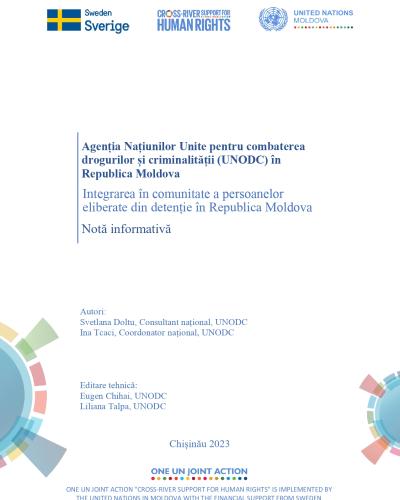Reintegration of persons released from prison into the society in the Republic of Moldova

People released from prison face stigma and discrimination from society, as well as a variety of social problems, such as lack of work, lack of insurance, or lack of housing. Without resolving them, they soon return to prison for a new term, which is why the rate of recidivism in the Republic of Moldova is very high.
To identify existing challenges and achievements, the United Nations Office on Drugs and Crime (UNODC), in partnership with the Ministry of Justice (MoJ), initiated a mapping of the actions currently being taken by relevant agencies within the 6 components of intervention outlined by the UNODC in the Introductory Guide to Recidivism Prevention and social reintegration of offenders:
1. Family support; return and integration into society;
2. Assistance in finding housing, providing temporary housing and financial support;
3. Ensuring access to medical and social services;
4. Substance abuse interventions and programs to change criminal behavior and attitudes;
5. Assistance in finding a job and returning to the labor exchange;
6. Monitoring and control of former offenders (“motivating”).
This activity was carried out within the framework of the Joint UN Program “Support for Human Rights on both Banks of the Dniester”, implemented by the UN Office in the Republic of Moldova, funded by Sweden. It will be coordinated by the Ministry of Justice and implemented at the intradepartmental, intersectoral and interdepartmental levels by the relevant institutions.





